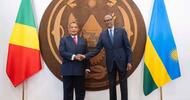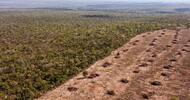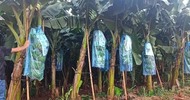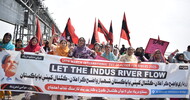Volatility in commodity markets tends to boost consolidation in the agriculture sector as firms require more capital and improved risk management, the executive officer of French giant Louis Dreyfus said Tuesday. One of the company's focus now is on farmland.
The Solvent Extractors’ Association of India, a body of over 800 edible oil producing companies, is looking to buy tracts of agricultural land in South America, Africa and Myanmar.
- Hindu Business Line
-
27 October 2009
Ramakrishna Karuturi does not feature on any international power list. Perhaps he should.
- Times of India
-
26 September 2009
China's sovereign wealth fund, China Investment Corp, has bought a 14.5 per cent stake in grain trading and production firm Noble Group for US$850 million.
- Reuters
-
22 September 2009
The Qatar Investment Authority (QIA) has launched a venture aiming to invest in food production worldwide focusing on the acquisition and development of existing agribusiness companies rather than the lease of large tracts of farmland.
- The Economist
-
08 September 2009
Un violento suceso acaecido en la Amazonía peruana en junio último alertó al mundo sobre lo que ocurre con las tierras del Sur.
Resource-hungry China has so far passed over investing in high-priced farmlands of South America in favor of Africa, with its less developed commodities markets, greater need for financing and open labor laws.
Hassad Food, owned by Qatar's sovereign wealth fund, will buck the Gulf Arab trend of buying farmland abroad to secure food supplies and consider taking stakes in agricultural companies instead, its chairman said.
Allied Venture promo video for Indian investors
Rothschild has recently formed a co-operation agreement with Rabobank, a leading global food and agricultural bank. The agreement covers co-operation for mergers and acquisitions and the equity capital market across a number of sectors including farm inputs and equipment, farm-based commodities, primary food processing, food processing and beverages.
- The National
-
15 July 2009
Actualmente los grandes compradores son el gobierno de Corea del Sur -que posee en el extranjero más tierras fértiles de las que tiene en su propio país-, seguido de China, Arabia Saudí, Emiratos Árabes Unidos y Japón.















